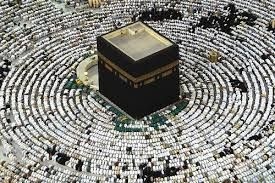The Five Pillars of Islam are the five religious duties expected of every Muslim. The five pillars are mentioned individually throughout the Quran and they are listed together in the Hadith when he was asked to define Islam.
Within a few decades of Muhammad's death, the five practices were singled out to serve as anchoring points in the Muslim community and designated "pillars." Fulfillment of the Five Pillars is believed to bring rewards both in this life and in the afterlife.
The pillars are acknowledged and observed by all sects of Muslims, including the largest sect of Sunni Islam, although Shias add further obligatory duties, including: jihad, payment of the imam's tax, the encouragement of good deeds and the prevention of evil.
The Five Pillars of Islam are:
Daily confession of faith (shahada)
Shahada is the first of the five pillars. Shahada is the Muslim profession of faith, expressing the two simple, fundamental beliefs that make one a Muslim:
La ilaha illa Allah wa-Muhammad rasul Allah. There is no god but God and Muhammad is the prophet of God. Daily ritual prayer (salat)
The second of the five pillars is called salat, Muslim prayer. Salat is performed five times a day: at dawn (al-fajr), midday (al-zuhr), afternoon (al-'asr), sunset (al-maghrib) and evening (al-'isha). It's always directed in the direction (qibla) of the Ka'ba shrine in Mecca. A prayer mat, sajjada, is commonly used during salat. Salat may be performed individually, but it carries special merit when done with other Muslims. The focal prayer of the week is the midday prayer at the mosque on Fridays.
Paying the alms tax (zakat)
Almsgiving is a central activity in Islam. The Quran explicitly requires it (9:60) and often places it alongside prayer when discussing a Muslim's duties. ("Perform the prayer and give the alms." 2:43, 110, 277)
Fasting during the month of Ramadan (sawm)
Sawm (also siyam), fasting, commemorates the revelation of the Quran to humanity during Ramadan, the ninth month of the Islamic year. During Ramadan, all adult Muslims are required to abstain from food, drink and sexual intercourse during daylight hours. Exceptions are made for travelers, soldiers, menstruating women, and the ill, although such persons are expected to fast later when they become able.
Pilgrimmage to Mecca (hajj)
At least once in his or her lifetime, each Muslim is expected to undertake a pilgrimage to Mecca, the sacred city of Islam. This holy journey is called the hajj in Arabic. While a visit to Mecca is beneficial any time of the year, it must take place during the month of Dhu al-Hijja (the last month of the Islamic year) to fulfill the requirements of the hajj.
References
- "Islam." Encyclopædia Britannica. 2005. Encyclopædia Britannica Premium Service <http://www.britannica.com/eb/article?tocId=9105852>.
- "Five Pillars of Islam." John Bowker, ed., Oxford Concise Dictionary of World Religions (Oxford UP, 2000).



